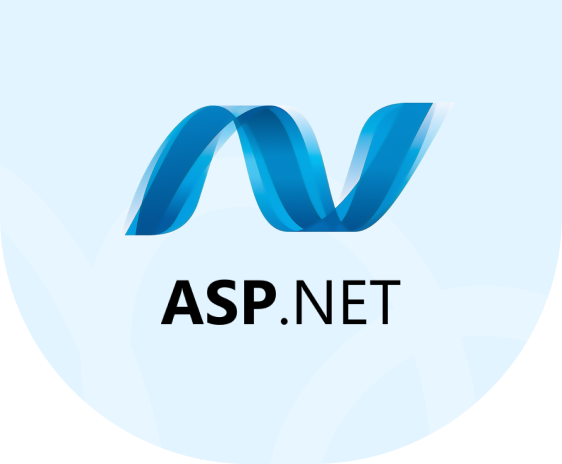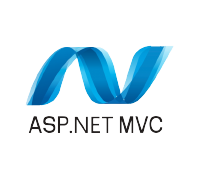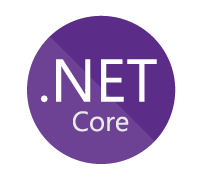


As an ASP.NET software development company, we help our clients build web, mobile, and desktop applications that represent their brands. Our mastery of language and its updates ensured the successful completion of custom solutions. Being solution-driven, we promise to automate workflows, modernize legacy systems, and enable structured data management. We help enterprises build custom net application development solutions through net software development services and net development consulting with necessary customization and complete reliability, regardless of their size or business segment.
At SPEC INDIA, we recognize the growing adoption of the .NET platform in this highly competitive market. Over the years, our skilled .NET developers, designers, and testers have been dedicated to delivering the finest .NET solutions and services to our valued customers.
Our .NET development company possesses long-standing industry expertise and market understanding to guide your business in achieving its desired goals with our .NET development services. We at SPEC INDIA have a dedicated .NET development team of proficient consultants to assist you with our .NET software development services 24/7, providing ongoing support.
Overcome unique business growth challenges to craft unique custom asp solutions and ASP .NET development solutions that are aligned to match the needs of your specialized development business goals. As a best-in-class .NET development company, we provide top-notch custom .NET development solutions.
Along with boosting performance, you can strengthen the security of your legacy applications by updating them to the latest technology, thereby enhancing security. Our seasoned .NET developers ensure smooth, secure, and reliable migration of your legacy system to the latest .NET version, retaining the features and functionalities.
We have over 20 QA testers well-versed in performing all types of testing, including performance, usability, security, and exploratory testing. Connecting with our QA team ensures cost reduction through its skilled resources and proprietary Integrated Manual and Automated Testing (IMAAT) approach. You can expect flawless delivery of your digital platform and boast about friction-free software.
Our maintenance and support services include keeping your digital platform secure, up-to-date, and high-performing. Count on our .NET developers to fix all bugs, enhance performance, secure the environment, and continually upgrade the platform versions. We undertake round-the-clock monitoring and issue resolution, fine-tuning, modernizing legacy systems, and enhancing features. So, wait no more and connect with us now.
Address cross-platform development needs with the most suitable .NET framework: .NET Core. Partner with SPEC INDIA to leverage the web services, cloud-native solutions, and custom ASP.NET Core and asp.net core development services. Offered by some of the top dot net talents to develop high-performance and reliable .NET solutions.
Enhance performance, security, web and mobile access, and more by reviving legacy applications and converting them into web apps within our .NET application development and .NET app modernization services. With our years of experience as a renowned dot net software development company, we are skilled to increase the value of your old apps through performance optimization by utilizing the latest tech stack.

Our dedicated .NET developers deliver custom .NET development solutions using versatile, cross-platform, and modern .NET frameworks.
ASP.NET

ASP.NET MVC

.NET Core

WebForms
C#

Razor

WPF

XAML

WinForms

Silverlight

AvalonDock
NoSQL

MySQL
Oracle SQL

PostgreSQL

Microsoft SQL

AWS

Azure

GCP

Snowflake
Selenium
Appium
JMeter
LoadRunner
UFT
Developed by Microsoft, .NET is a custom software development framework that supports a variety of coding languages, including F#, C#, and Visual Basic. The developers use this framework to develop apps run on the various platforms. It comprises a set of standard class libraries which facilitate the development of desktop and web applications.
The Object-Oriented Programming (OOP) paradigm is one of .NET’s pillars. This strong emphasis on objects offers productivity-enhancing features. This paradigm breaks down the software into manageable code chunks, enabling ASP .NET developers to work on these chunks one at a time. OOP Module increases reliability and streamlines the entire development process.
Eliminate performance bottlenecks caused by scalability issues with the .NET framework. .NET enables developers to address development requirements like data workload and escalated traffic, resulting in an increased customer base. Rapidly changing needs are met with .NET features like fast response time, lesser computing power consumption, and more.
.NET framework empowers the developers to develop applications on multiple OS like Windows, Linux, and macOS. With our .NET development services, businesses avail the various coding libraries that enable the developers to create and run code on desktops, mobile devices, and the web. .NET makes it easier to write code in F#, C#, or Visual Basic, which can run on various OS.
.NET framework is a go-to choice for dot net experts as it features a large class library called the Common Language Runtime (CLR) and Framework Class Library (FCL), enabling developers to build apps in their preferred languages. The framework also enables compatibility with unmanaged programs and offers a seamless user experience across varied platforms.
.NET Core’s capability of flexible deployment is described to be as simple as copying a folder. The code written by .NET developers can be integrated into the program and deployed separately. .NET enables the inclusion of all the dependencies given its modular design. It facilitates the run different project fragments side-by-side enabling a seamless deployment process.
Most efficient memory management is one of the advantages of the .NET framework. The simple caching system program enables temporary data storage, which eventually enables the dot net developers to increase apps’ speed and performance and scale it as needed. .NET also enables cache implementation to be customized for all types of applications and dynamic web pages.
Our flexible hiring models and skilled .NET developers make us one of the most reliable .NET development companies with 36+ years of experience in software development.
Get in Touch
Discover the diverse range of industries we proudly support with our innovative software solutions to companies of different business verticals. Our expertise spans multiple sectors, ensuring tailored services for every unique need.
Absolutely. .NET is an excellent choice for eCommerce applications. Its robust security features, seamless third-party integrations (including payment gateways, CRM, ERP, etc.), and high scalability empower mobile and web application development. With .NET, you can build custom software that includes complex inventory systems, a feature-rich platform, real-time order processing, and responsive dashboards, delivering a top-tier shopping experience.
If you are facing several challenges, such as scalability, cross-platform functionality, sluggish performance, high maintenance costs, and a restrictive architecture, you can opt for .NET Core. The migration brings benefits such as performance optimization in your .net development project. Support for cloud-native development, rapid execution, and enables code unification across mobile, web, and desktop platforms.
Yes, our .NET software developers have experience working with clients’ time zones. They align with your time zones, enable seamless communication, provide real-time updates, offer end-to-end support, and ensure productive collaboration throughout your project lifecycle.
ASP.NET is a purpose-built, high-performing, and secure framework for developing .NET enterprise solutions. Choosing this net development company framework means you can expect rapid development and swift integration with custom software and third-party tools, as well as compliance management that meets strict security standards. ASP.NET is the ideal choice for business-critical applications, as it provides a strong foundation that Microsoft supports.
The .NET Framework works perfectly well for legacy enterprise applications.
We can build cross-platform mobile apps that work seamlessly on both Android and iOS. Irrespective of industry, our .NET software solutions offer native performance, an intuitive user interface, and maintainable architecture.
Several factors contribute to determining the cost of ASP.NET app development, including defining the project scope, development complexity, the required tech stack, and engagement models. We offer three different types of engagement models: hourly, fixed, and dedicated resources. You can connect with us for consultation and a quote.
Our dot net development team maintains transparency throughout the project. We provide timely updates, project demos, and progress reports on every task, whether ongoing or completed, on Jira or Slack (your preferred platform). Since we follow an agile approach, we even provide feedback to maintain the software quality.
Yes, .NET supports serverless architecture through Microsoft Azure functions. It enables web application development services, scalability, and event-driven apps without the need to manage servers, resulting in cost reduction and reduced complexity. If you are a startup or enterprise seeking a cloud-native, microservices-based architecture, then consider our .net application development company and .NET development services.
SPEC House, Parth Complex, Near Swastik Cross Roads, Navarangpura, Ahmedabad 380009, INDIA.

This website uses cookies to ensure you get the best experience on our website. Read Spec India’s Privacy Policy